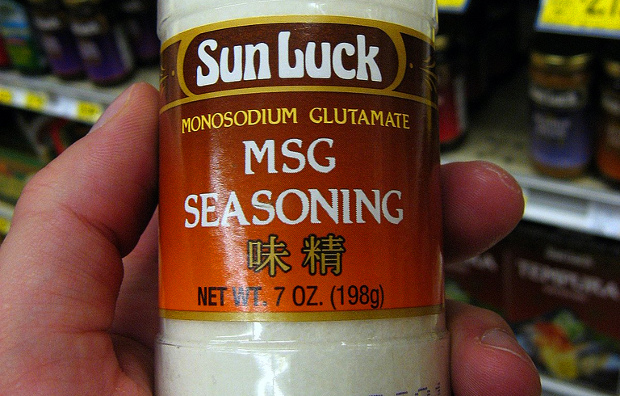It seems like no food is safe anymore. High fructose corn syrup causes diabetes. Swordfish is filled with mercury, a neurotoxin. And the latest bad news? Bacon is a carcinogen according to the World Health Organization (WHO). When it comes to monosodium glutamate (MSG), though, it looks like science is on the side of tasty foods.
Commonly associated with Chinese food, MSG has garnered quite a negative reputation over the years. Its use has been linked to a variety of health problems from headaches to allergic reactions to general sluggishness.
MSG’s bad rap can be traced back to a letter written in 1968 to the New England Journal of Medicine by Dr. Robert Ho Man Kwok. The letter, titled “Chinese Restaurant Syndrome,” recounted Ho Man Kwok’s experience of eating out at Chinese restaurants, which resulted in him having symptoms of numbness and weakness. Ho Man Kwok speculated that his malaise could be due to the flavouring used by Chinese restaurants.
“The cause is obscure,” the paper reads. “[Some] have suggested that it may be caused by the monosodium glutamate seasoning used to a great extent for seasoning in Chinese restaurants.”
And with that, Ho Man Kwok sparked one of the most pervasive food myths of today: MSG is dangerous.
Nowadays, stigma has caused many Chinese restaurants in Montreal and throughout North America to boast “No MSG” on storefronts and in menus. The label can be found in the grocery store aisles on seasoning salts and pre-packaged foods. The signs and labels are meant to ease customer concerns, but they also feed the fire that MSG should be avoided. As of yet, there’s no rigorous scientific evidence or research to back MSG’s infamous reputation.
Discovered by Tokyo Imperial University chemist Kikunae Ikeda in 1907, MSG was created to capitalize on umami flavour. Umami, a flavour outside of the four basic tastes—sour, sweet, salty, and bitter—is hailed as the savoury taste that’s found in foods such as mushrooms, beef, miso and Parmesan cheese. Umami-packed MSG helps to explain the deliciousness of ramen flavouring packets, for example.
It was Ikeda who first attempted to identify this feeling or flavour of umami. He discovered that many of the foods associated with umami contained L-glutamate. Seeking to isolate umami, Ikeda synthesized MSG by extracting glutamate from kombu seaweed and stabilizing the molecule with table salt and water. Glutamate is a non-essential amino acid naturally produced in the human body. L-glutamate refers to the chiral orientation of the amino acid.
If the two components of MSG—table salt and glutamate—are naturally-occurring substances, then what is the big concern over MSG?
As it turns out, MSG’s demise is more than just a story about the difficulties of altering public perception; it is also a story about the misuse of science.
Soon after Ho Man Kwok’s letter to the New England Journal of Medicine was published, a study came out in Science, which implicated MSG consumption in some nasty symptoms. John Olney, a professor at the Washington University School of Medicine, published “Brain lesions, obesity, and other disturbances in mice treated with monosodium glutamate” in which newborn mice were subcutaneously injected—that is, injected under their skin—with about 0.4 to 5 mg of MSG. Following the injections, the mice developed a slew of symptoms ranging from stunted skeletal development to obesity to neuronal necrosis of the hypothalamus.
Though the results did prove that direct injections of enormous quantities of MSG will have harmful effects, it by no means mimicked the way MSG is consumed by humans. For example, Olney injected the mice with MSG whereas humans acquire MSG by eating it. As a result, the human body will metabolize MSG differently than Olney’s mice. This, coupled with the dose the mice received—rates of which would be very unlikely for humans—means that very little of this work can be applied to actual human consumption.
The study performed by Olney is an important lesson when considering scientific findings. While results may have indicated MSG is causing trouble for mice, it might not mean the same for humans. With MSG so heavily demonized in North America, changing the minds of the public is likely to take a long time.









